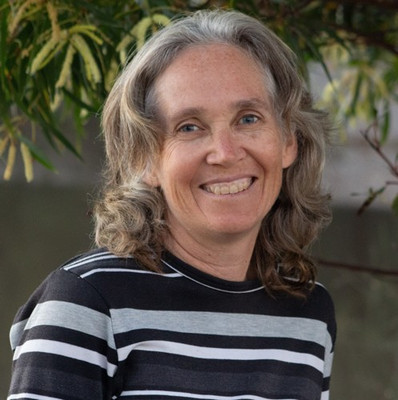Author Interview — LOVE, LOSS, AND HEALING: Frances Prentice
Novel Insight on 30th Apr 2025
Frances Prentice, the author of Always Your Sister shares the inspiration and lived experience behind an uplifting story of loss and family, offering reassurance to readers going through their own difficult times.
What do you love most about writing children’s fiction?
Writing takes me into another world. It allows me to be my inner child as I explore feelings and grow with my characters. I actually learn new things about myself as I write.
What inspired you to write Always Your Sister?
I wanted to share our family's experience of having a stillborn baby. The memories of Noah are based on those of our baby, Samuel. I think it is such a common experience but rarely discussed, especially with children. This book gives families an opportunity to share their stories of pregnancy and infant loss.
Did any personal experiences contribute to this story?
I write mostly from personal experience—my own experiences combined with those of my family and friends. We live on a 500-acre cattle property and have experienced drought. I have a daughter who is a gifted musician and another who is an artist (she designed the posters on the back cover). My son was torn between a sporty and a bookish friend when he first began school. My children were school and house captains. Both my stillborn and first rainbow baby were born in Toowoomba Base Hospital. When I was having my last child in a country hospital aged 43, a 16 year old girl had just delivered her first baby the night before. We love campfires, camping and cubbies—the list of similarities is endless.
Always Your Sister centres around themes of loss and family. What was it like to write about these things?
It was hard at times, but also cathartic. I have always been open to talking about our loss and family issues but it did give me an opportunity to really delve into and process some deeper emotions.
Were there any moments in this story that you found particularly challenging or meaningful to write?
The descriptions of Noah and his brief journey on earth directly mirrored our experiences with Samuel. It felt good to acknowledge and value our stillborn baby's life in this way.
Between raising children, tutoring, and teaching, how do you set aside time for writing?
I began this novel during COVID when life became more home-based with remote learning and no extracurricular activities, giving us more time.
In recent years, I write when I wake early, or on days when we are home all day and I can carve out some time for me. Recent health issues have meant I need to sit more, and writing is something I can do when I am unable to do more energetic activities. It keeps me sane.
You collaborate with children regularly. Has this shaped or changed your approach to writing new stories in any way?
Writing with children has been a wonderful experience. It gives me a fresh view of the world through their eyes. It helps me to know what interests them and helps me to find authentic voices for my characters.
What do you hope readers will take away from Always Your Sister?
I hope readers realise that stillbirth and pregnancy loss are not things to be feared or dreaded—they are just part of some people's journeys and can draw families closer together. It is a hopeful book, focussing on taking a positive approach to problems, communicating feelings, learning and growing together.
Do you have any other projects in the works?
I have a teen fiction book due to be published in October entitled Holding Back. It is about a shy fifteen-year-old homeschooler who does campdrafting with his younger sister. He learns that sometimes it is important to push through your fears, and not hold back.
I am also working on another teen fiction about a young woman whose promising soccer career suffers a setback. Both of these have been commissioned by Rhiza Press.

